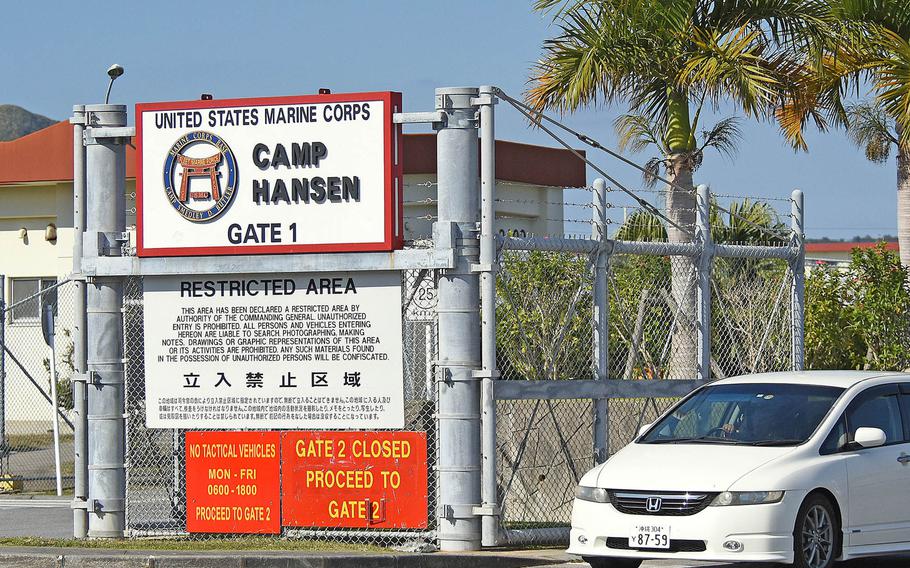
Discovery of More PFAS Should Prompt US Forces To Allow Base Investigations
The prefectural government and town of Kin have been requesting an on-site investigation of the U.S. Forces Camp Hansen base since the PFAS were originally detected, as it is highly likely that the chemicals originated from there. The U.S. Marine Corps, however, continues to deny that the incident has any connection to their base and have refused calls to investigate. Does the Japanese government have any intention of establishing the truth in this matter? Allowing these questions to go unanswered equates to nothing but disregard for local residents.
How is it possible to protect the lives and health of residents in the town while the situation goes unaddressed? The cause of this chemical leak must be investigated, responsibility for the incident must be identified, and local residents must be given access to health checks. U.S. forces should immediately allow an on-base investigation and take appropriate action. This situation also demonstrates the need to revise the U.S.-Japan Status of Forces Agreement, which prevents investigations of this sort by Japanese authorities.
PFAS accumulate in the bodies of humans and animals because they do not degrade in the environment. In addition to being a possible carcinogen, they also affect birth weight. According to town authorities, a level of 59 nanograms of PFAS was detected in one of three tap water samples taken on Feb. 21 in Kin, exceeding the guideline level of 50 nanograms. A level of 180 nanograms was detected in two of the six water sources in the area.
A level of 70 nanograms was also detected in Kin in June 2020. The fact that this degree of contamination has been left as it is for a year and eight months is in itself extraordinary. The town and town council have repeatedly asked the government for its cooperation in conducting an on-base investigation to establish the cause of the contamination and to implement measures based on those findings. The town is accelerating efforts to construct a water pipe to switch all water to the prefectural bureau's supply to interrupt intake from water sources that exceed the guideline levels of PFAS.
It is not clear who bears responsibility for the problem, especially when progress has stalled on even establishing the central facts. Local residents are anxious to have health checks, and still nothing happens. Kin Mayor Hajime Nakama envisions an on-site investigation to determine the cause of the problem, then plans on appealing to the government to support health checks on the basis of the inspection's results.
The U.S.-Japan Status of Forces Agreement is the main obstacle to an on-base investigation. The “Framework on Environmental Stewardship” only permits Japanese authorities to enter a U.S. base once U.S. Armed Forces identify the cause of an issue themselves and report it to the Japanese authorities. If U.S. Armed Forces do not establish the cause, no investigation can take place.
The claim made by U.S. forces is that “a preliminary investigation did not identify any particular cause on the base relating to the high levels [of PFAS].” However, the U.S. has not publicly shared any of the investigation details, such as which sites it investigated, what if found and the level of PFAS that was detected. It would simply be irresponsible to take U.S. forces at its word when they have continued to act in bad faith.
If this contamination really has nothing to do with U.S. bases, then they have nothing to lose in opening themselves up to investigation. It is imperative that the Japanese government work to fundamentally revise the Status of Forces Agreement to allow Japanese authorities to enter bases when necessary.
All tap water at Camp Hansen is supplied by the prefectural bureau. It is simply unacceptable that U.S. forces are able to drink safe water while, likely due to the actions of the U.S. Armed Forces, local residents are forced to drink water that is contaminated.

